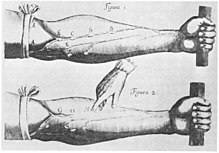Scientific and technical progress
Throughout the seventeenth and eighteenth centuries there have been numerous scientific and technological innovations, which are very important for the evolution of knowledge.
Scientists developed with their research a new method of work: the experimental method. still used today, this method is based on the following sequence:
1st – observation of a given phenomenon;
2nd – formulation of an explanatory hypothesis of the phenomenon observed;
3rd – experimentation, that is, realization of several experiments to verify the validity of the formulated hypothesis;
4th – conclusion and establishment of the law, thus generalizing the conclusion to all phenomena of the same nature.
The progress of the sciences in this period was so great that it provoked a veritable scientific revolution.
In Astronomy: Galileo Galilei proved the heliocentric theory, which had previously been defended by Copernicus, and built an astronomical telescope with which he made the first astronomical observations; Newton formulated the theory of universal gravitation of bodies.


In Physics: Pascal and Torricelli deepened the study on atmospheric pressure and vacuum; Galvani, Volta, and Benjamin Franklin elaborated studies on electricity.
In Chemistry: Lavoisier laid the foundations of modern chemistry.
In Medicine: Harvey has demonstrated the constant circulation of blood in the body.

In Mathematics: Descartes deepened studies of algebra.
The rigor demanded by the experimental method led to the construction of a series of precise instruments and, simultaneously, these technological innovations acclaimed the scientific advances and contributed to the formulation of new hypotheses. In this context, the telescope, the microscope, the thermometer, the barometer and the pendulum clock, for example, emerged.
The widening of the knowledge about the world
All this scientific and technological progress, together with scientific curiosity, the will for territorial domination and the needs of economic develompment of the European powers, led to the organization of new exploration trips.
In the seventeenth and eighteenth centuries, Spanish, English, French, and Danish navigators traveled on expeditions of maritime exploration and discovery that brought to the knowledge of the Europeans territories previously unknown or undiscovered. These trips were organized according to the scientific spirit of the time, and so, besides the crew, they also had the presence of cartographers, botanists, and other scientists whose mission was to study in depth the new spaces.

